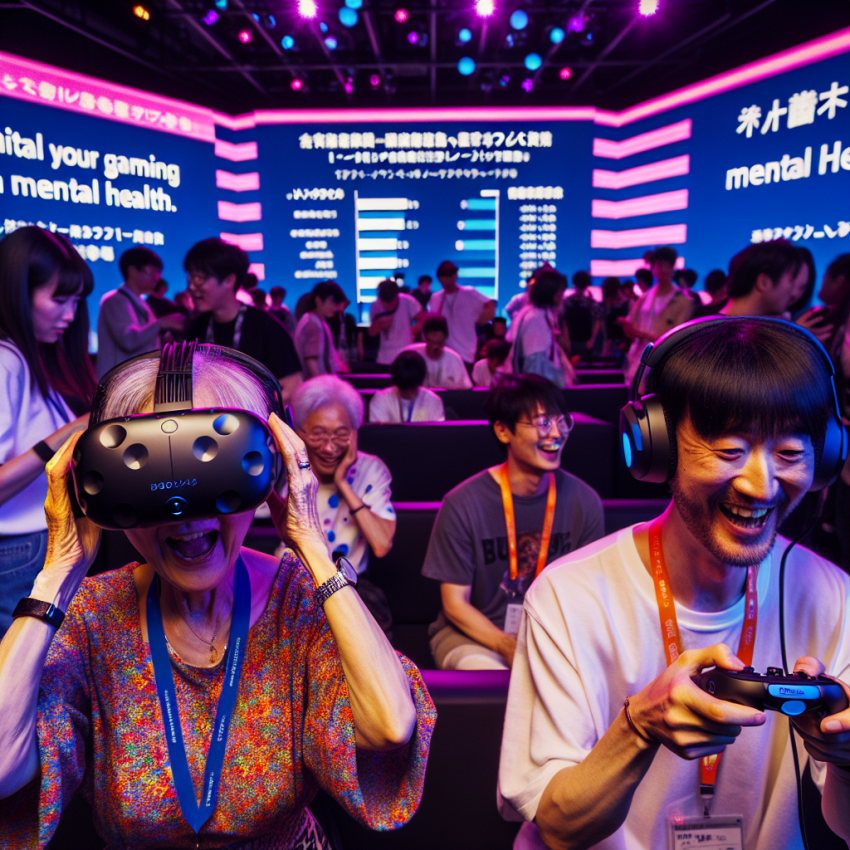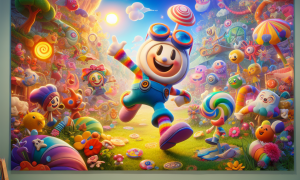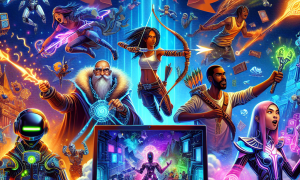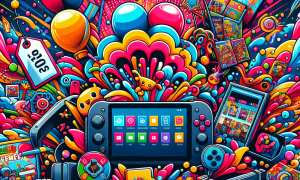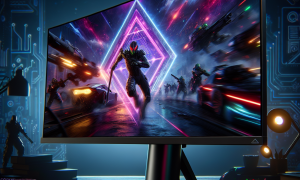Japan’s Unique Event Sheds Light on Gaming and Mental Health
In recent years, gaming has become an integral part of daily life for millions around the globe. While the popular culture surrounding video games often highlights entertainment and community, researchers are increasingly interested in understanding the nuanced relationship between gaming and mental health. In Japan, a unique event has provided scientists with unprecedented insights into this dynamic interplay.
The Event: A Lab for Mental Health Exploration
For four remarkable days, Tokyo played host to the “Game and Mental Health Seminar,” an innovative event that brought together gamers, mental health professionals, and researchers. Designed as both a conference and interactive experience, the event offered *hands-on workshops*, insightful presentations, and real-time gaming sessions, allowing scientists to gather rich data on how gaming impacts mental health.
The seminar was notable for its diversity of participants, including:
- Game developers
- Mental health experts
- Everyday gamers
- Psychologists
- Researchers
This unique blend fostered an engendering atmosphere perfect for exploring the complexities surrounding gaming and psychological well-being.
Understanding the Spectrum of Gaming Effects
One of the most significant takeaways from the seminar was the recognition that gaming’s effects on mental health are not one-dimensional. Instead, they can vary greatly depending on several factors:
- Duration of Play: Excessive gaming can lead to negative outcomes, including addiction and social withdrawal.
- Type of Game: Certain games, particularly those that encourage collaboration and problem-solving, may promote socialization and positive emotional states.
- Individual Differences: Personal characteristics such as age, gender, and pre-existing mental health conditions can play a critical role in how gaming impacts individuals.
By analyzing participants’ experiences in real-time, researchers gained a deeper understanding of these nuances.
Insights from Participants
At the heart of the event were the voices of the participants. Gamers openly shared their experiences, revealing a spectrum of outcomes ranging from enhanced mood and self-esteem to feelings of isolation and frustration.
Key testimonials included:
– A college student shared how competitive gaming provided an essential social outlet, connecting him to friends during stressful periods of his academic life.
– A mental health professional noted that many individuals reported using gaming as a coping mechanism to manage anxiety and depression.
– Conversely, another participant discussed how excessive playtime led to feelings of guilt and decreased productivity, highlighting the struggle for balance.
These firsthand accounts created a rich tapestry of insight that could inform future studies and interventions.
The Role of Community and Connection
One major theme that emerged from the event was the idea of community. Many participants emphasized that gaming can create a sense of belonging and connection, combatting feelings of isolation:
- Online Communities: Gamers often find supportive networks through social media and online forums, which can replace or enhance real-life interactions.
- Cooperative Play: Many games require teamwork, reinforcing the importance of collaboration and shared experiences, which can boost mood and well-being.
- Events and Tournaments: Competitive gaming events foster camaraderie and build friendships that extend beyond the screen.
This sense of community is particularly crucial for individuals who may struggle to engage socially in traditional environments.
A Call for Balanced Perspectives
Despite the acknowledgment of gaming’s positive effects, participants and researchers alike called for a balanced perspective. As striking as the benefits may seem, it is essential to recognize and mitigate the potential downsides of gaming, especially when not approached mindfully.
Recommendations for Healthy Gaming Habits
To harness gaming’s positives while reducing potential risks, the seminar generated several key recommendations:
- Moderation: Gamers should adopt healthy gaming habits, including regular breaks and diversified activities.
- Awareness: Individuals need to remain conscious of how their gaming behavior affects their mood and well-being.
- Support Structure: It’s vital to maintain open lines of communication with friends and family regarding gaming habits and mental health pressures.
By implementing these recommendations, gamers can create a healthier relationship with their chosen hobby.
Future Directions: Research and Gaming
The conclusions drawn from the seminar will undoubtedly serve as a catalyst for further research in the field. Scientists have expressed interest in continuing to examine the multifaceted relationship between gaming and mental health through longitudinal studies and targeted interventions.
The event in Japan laid the groundwork for collaborations between developers and mental health professionals that could lead to the creation of games expressly designed for therapeutic purposes. For instance, developers might design games that emphasize well-being or include built-in resources for players struggling with mental health issues.
Key Takeaways for Future Research Include:
– Understanding how different genres impact mental health in distinct ways.
– Exploring the potential of virtual reality as a therapeutic tool in managing anxiety and depression.
– Investigating demographic variables that affect gaming experiences among different audiences.
Conclusion
Japan’s “Game and Mental Health Seminar” provided a unique and timely opportunity to explore and evaluate the evolving relationship between gaming and mental health. Through shared experiences and collaborative learning, participants were able to uncover both the potential benefits and risks of gaming.
As we move forward, it is essential to embrace a balanced and informed perspective on gaming, ensuring that we promote its positive aspects while acknowledging the need for moderation and support. The future of gaming could very well contribute to the ongoing conversation about mental health, bridging gaps and building connections that enhance lives.
Citation: A unique event in Japan gave scientists unprecedented insight into gaming’s mental health effects written by Eric W. Dolan
